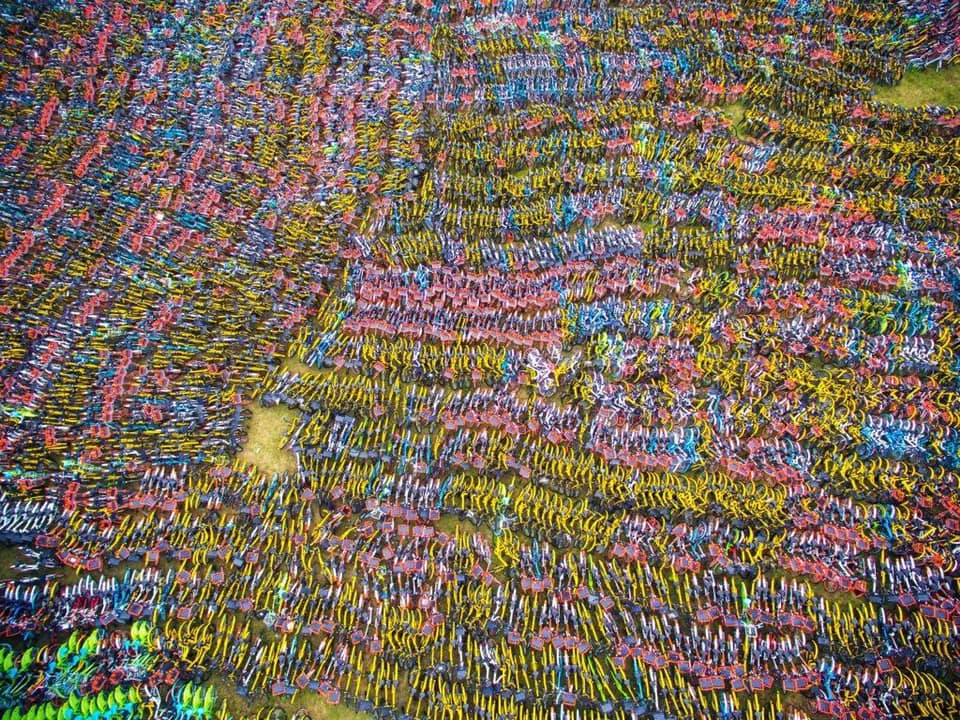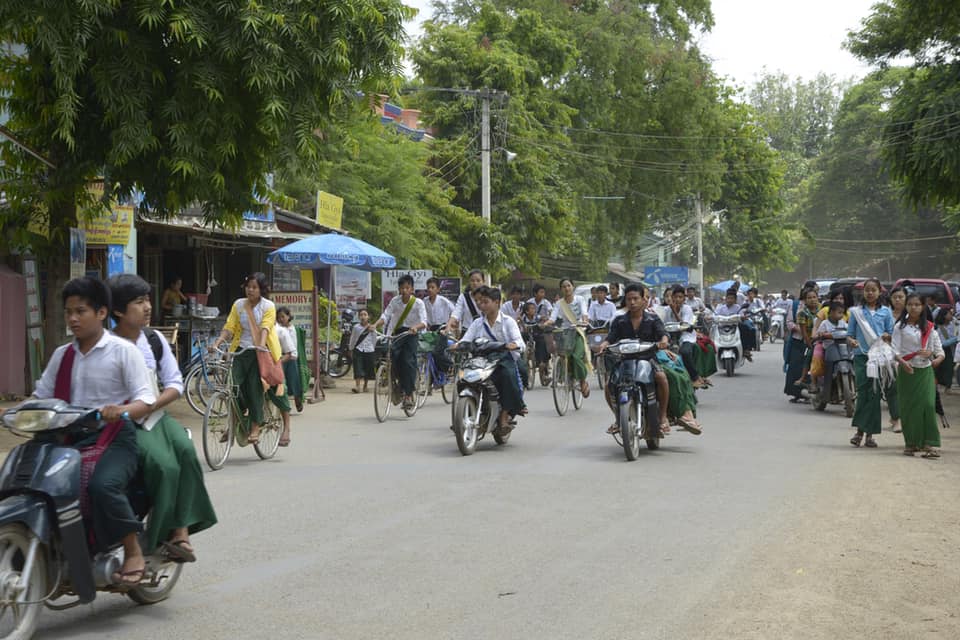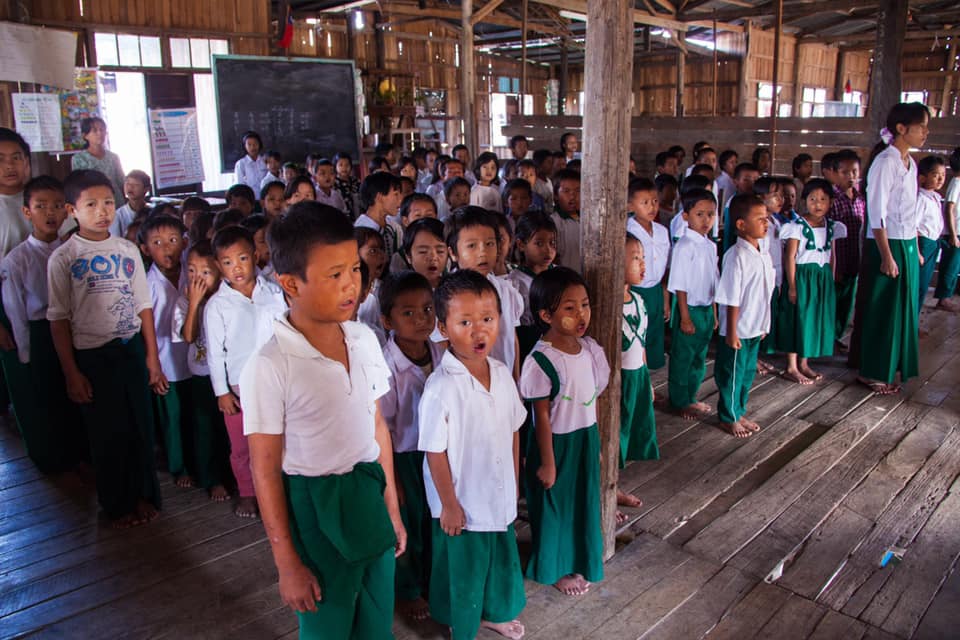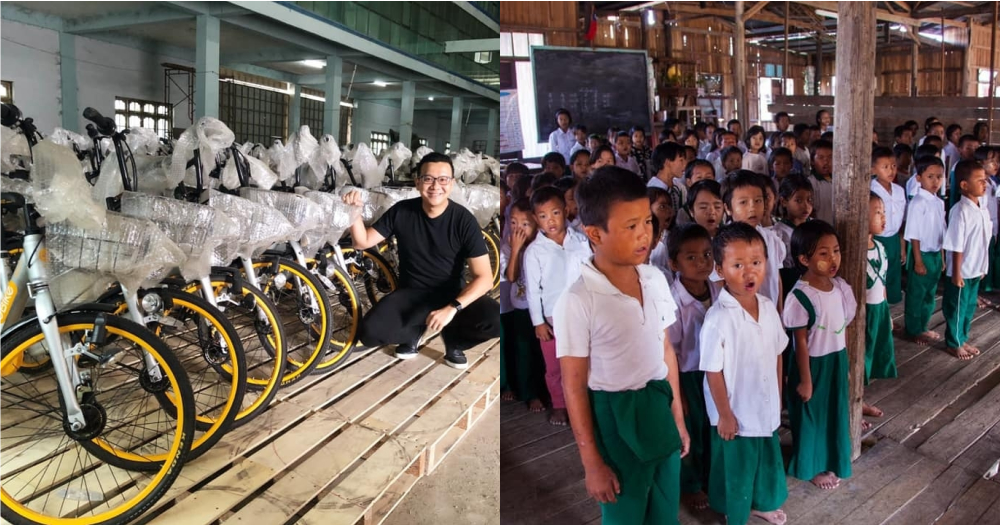Bike sharing has failed in many countries including Singapore.
What's left behind are piles of bicycles. Some are new and undeployed, while others are broken or missing some parts.
Mike Than Tun Win, 33, decided to give them a new lease of life.
Saving bikes from graveyards
Mike shared that many bicycles from bike sharing companies oBike, ofo and Mobike are to be scrapped and sold to recycling plants. Some of these bicycles include new and undeployed ones too.
 Photo from Mike Than Tun Win's Facebook.
Photo from Mike Than Tun Win's Facebook.
Given that a new bicycle might cost between USD150 and USD200 (about S$205 and S$270) to create, dumping them is a waste.
While these bicycles might seem redundant and disposable to some, they can still be useful to less-privileged people in the world. Mike said:
"It’s probably sad that richer nations might not know how to treasure such a simple necessity but to people in need, it can be a huge impact and even life changing."
After schooling and staying in Singapore for 18 years, Mike returned to Myanmar in 2011 to start a tech company.
In Myanmar, the Nanyang Business School graduate has seen under-privileged students walk up to an hour from home to school.
 Photo from Mike Than Tun Win's Facebook.
Photo from Mike Than Tun Win's Facebook.
 Photo from Mike Than Tun Win's Facebook.
Photo from Mike Than Tun Win's Facebook.
For most, bicycles are the most convenient and affordable mode of transport.
This is the reason why large quantities of used bicycles are imported to Myanmar from Thailand and Japan.
Sending 10,000 bikes to poor students in Myanmar
This observation prompted Mike to start a movement called lesswalk.org to redistribute these unused bicycles to poor students in Myanmar.
For a start, he aims to buy and import bicycles to poor students at grade seven to ten and live within a walking distance of 2km from their schools.
So far, they have already imported 10,000 bicycles to Myanmar and these are undeployed bicycles in perfectly new conditions.
Mike said that only some of the ofo bikes come from Singapore, the rest of the bicycles are not.
Mike also shared with Mothership.sg that some modifications will be made before distributing to the beneficiaries.For example, they will replace the digital locks with normal chain locks with key as well as including an additional seat at the back so that siblings can cycle to school together.
He also revealed that the logistic cost from buying the bicycles to sending them to the receivers at rural villages is about USD35 to USD40 (about S$47 to S$54).
Fortunately, 50 percent of the cost of this project is covered by other sponsors that Mike managed to secure.
Turning crises into opportunities
Moving forward, Mike will source for excess bicycles from China, Japan, Taiwan and the Netherlands to continue this project.
He hopes that this project will inspire more people to do the same to help those in need:
"The problems we are helping to solve is not limited to Myanmar but faced by many countries globally. We also hope the publicity will help government and recycling plant & bicycle graveyard to rethink the approach and turn the first country problem to opportunities."
All photos from Mike Than Tun Win's Facebook
If you like what you read, follow us on Facebook, Instagram, Twitter and Telegram to get the latest updates.
